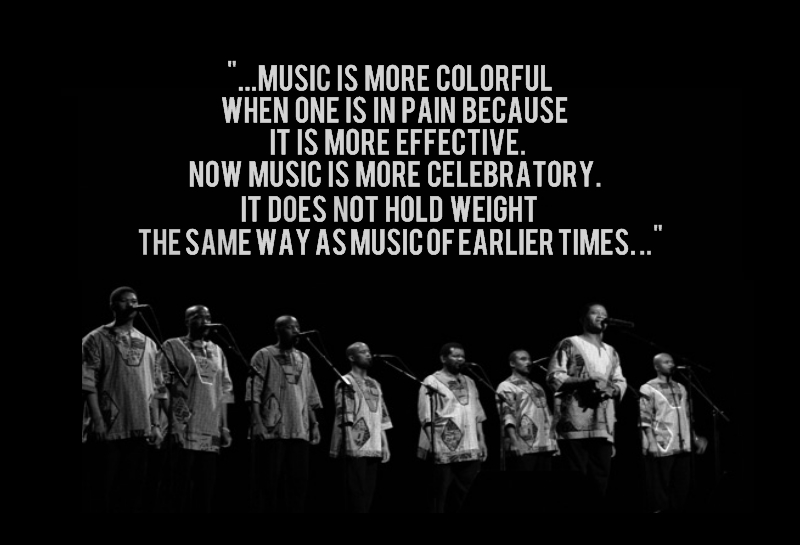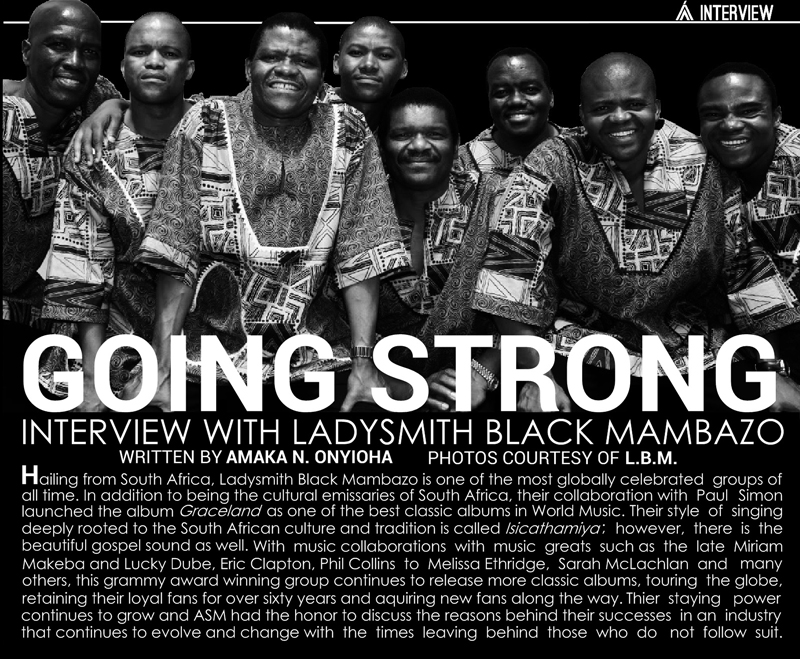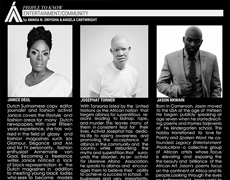ASM: What was your initial aim in coming together as Ladysmith Black Mambazo?
LBM: We founded this group in1960, amidst difficult times, as a way to convey the message of hope to the people of South Africa. When Joseph Shabalala approached me in 1959 about forming the group, he had the vision of using songs that lies at the core of all we do as a way to empower the people. We wrote and sang songs that encouraged people to work together and to believe that with trust and collective aspiration, things could indeed get better.
ASM: You began at a time when, as much of Africa gained independence and self-autonomy, while your country seemed dedicated to maintaining apartheid and the people were systematically oppressed while Madiba was incarcerated. Was there a point in time that you conviction wavered?
LBM: The way things were at that time, it was easy to lose hope and I would not deny that there were moments that we did. However, when we came together to rehearse or perform, we were energized by the power of our songs. The songs, were written in moments of faith, and somehow, the songs themselves kept us fortified in the spirit that would inspire change. If there was a time that our conviction was tested, it was amidst the pain of watching the suffering boil to the point where our brothers fought and killed one another– Black on Black. When some men caved and let poverty turn themselves against what should have been their fellows in struggle was devastating. We responded with music releasing four consecutive albums aimed at the hearts and minds of the political organizations that were fighting each other. We called out the names of each political organization, encouraging them to come together to solve their problems. As this music spread, all of South Africa was to hear from the bottom our hearts, this basic wish for collective harmony, and to put aside the anger and to build productive consensus, no matter how trying. Whatever moments of uncertainty we may have had over the years were greatly relieved when, upon his release, this very message was echoed by Mandela; even though some preferred to fight. Ultimately those who chose peace made the greatest difference.
ASM: One of the biggest concerts in history took place in South Africa, with Sting, Eurythmics, Whitney Houston, Paul Simon, UB40, Peter Gabriel, Youssou N'dour, Salif Kieta, Miriam Makeba, Hugh Masekela and many others performing alongside you. Were you surprised at the international artistic response to South Africa?
LBM: We did not know South Africa would get that kind of response. We were just doing something that we believed in. It was heartening to know how the world’s artists could come together in such a way. As great as this was, we were especially lifted when Mandela told us our songs were a great inspiration for him while he was incarcerated. It was remarkable to hear. In addition, we are encouraged any time we learn that we have inspired those amid just struggle.

ASM: When you reflect on South Africa's current music? How has its message progressed?
LBM: There is still some good music out there, but South Africa's music seems to have progressed and softened with the times. For me, music is more colorful when one is in pain because it is more effective. Nowadays in South Africa, the music is more celebratory. It is more for entertainment, which is not bad but it does not hold weight or ones attention in the same way as music of earlier times. There is more of a sexual emphasis in the songs of today, which was not the case back then. There are still songs that speak to encouragement but there is a different focus. Today’s songs place emphasis on a kind of personal private success, but majority of these songs fail to deal with the nuanced details in struggles one may have to go through to attain success. I think it is within these details that today’s music could find a spirit similar to the music of old. It is an opinion which maybe wrong.
ASM: Madiba was seen as the peacemaker. With him gone, where will South Africa look to check its soul?
LBM: What Madiba started will continue to press on. The worry probably comes because the younger generation is different from ours. The concern would be their ability to pick up from where we left off to fulfill the wishes of their elders and ancestors. We are passing the mantle to them with hopes that they understand the mantle cannot be dropped or broken. Realizing the importance of where we were, and seeing how far we have come is extremely vital. So the question is, will they carry on the path we have sang, fought and died for, or will they be nonchalant about it hence letting go of all that was built on the backs of many of their parents, grandparents, great grandparents? Time will tell; but we have hope that they will push forward the dreams of Madiba and all those who have fought for their freedom.




